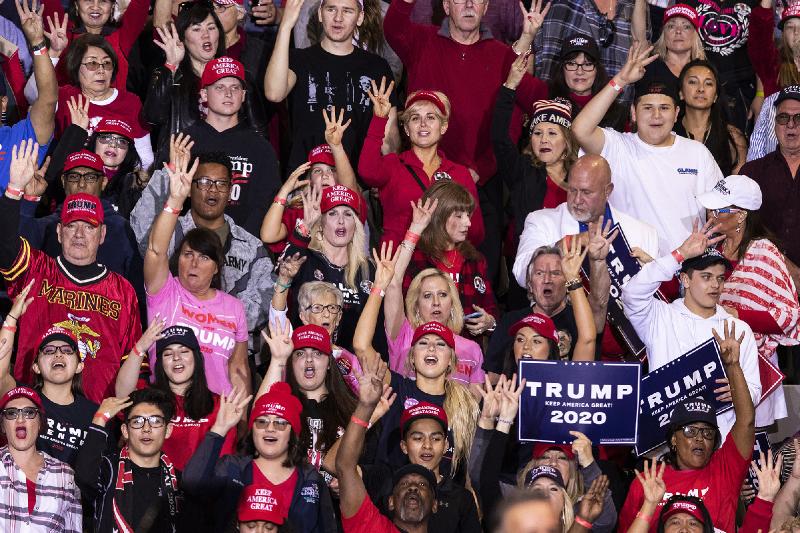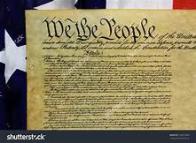Why Trump's negative press spurs millions to like him even more
By: Augustus Howard (New York Post)



With Election Day in sight, the mainstream media is reaching a fever pitch in its quest to malign, discredit and defeat Donald Trump. The media's disinformation campaign against Trump, however, may not be achieving the desired results. Joe Biden maintains a lead in public polls, but according to the Real Clear Politics polling averages, the gap is closing both nationally and in battleground states. Evidence of enthusiasm on the ground is also real: Thousands are again attending MAGA rallies, as Trump takes Air Force One on a "whistle-stop" tour of the country.
One can almost hear the collective gasp from establishment-media quarters: Can this really be happening again? Won't any of our Devastating Reporting ever catch up with the Donald?
In fact, Trump has succeeded — and will likely continue to succeed — not in spite of the media campaign against him, but, at least in part, because of it. Voters have grown wise to the media agenda, and recognize stories crafted to fit a certain mold rather than to follow the facts. They know what a smear looks like, and they don't like it. At the same time, the ceaseless onslaught has made Trump a permanent underdog. And Americans identify with and cheer for underdogs — an aspect of the national psyche that media and political elites, detached as they are, forget.
Understood in this light, one can see why negative Trump coverage may boomerang, including recent "bombshells" from The Atlantic magazine and Bob Woodward. Citing unnamed sources, The Atlantic claimed that Trump ridiculed American soldiers killed in war. The story, however, was soon undermined by reality. None of its sources came forward. Officials who did come forward — including former National Security Adviser John Bolton, a noted Trump critic — contradicted the account. Voters were left to wonder: Is The Atlantic more interested in harming Trump, particularly with his military supporters, than it is in the truth?
As for Woodward, who taped hours of interviews with Trump for the book "Rage," almost any statement can be grounds for scandal. Speaking to Woodward on March 19, the president said of the novel coronavirus: "I wanted to always play it down. I still like playing it down, because I don't want to create a panic." On "60 Minutes," Woodward, clearly eager to use the vocabulary of Watergate, suggested Trump was "going down the path of deceit and cover-up." But attentive observers at the time intuited the president's strategy — the fact that he wanted to take decisive action against the virus while instilling calm in the nation. Where Woodward sees a tragic cover-up, others will find a common-sense approach to an unfolding crisis, and leadership in the context of often conflicting scientific information.
While the Trump-bashing stories continue to mount, so, also, do Trump's accomplishments. On Sept. 15, voters watched the signing of the Abraham Accords at the White House: agreements, facilitated by the Trump administration, that normalize and improve ties between Israel and two Persian Gulf states — the United Arab Emirates and Bahrain. Democrats and the mainstream media may dismiss the importance of these historic pacts — legitimate steps toward peace in the Middle East — but the American people won't.
Many Trump fans are buoyed by his positive actions — like his recent success in the Middle East — rather than upset by damaging words he may or may not have said.
Nor will they disregard a stock market recovery, good news that a vaccine is likely near, or the president's pressure on obstinate Democrat leaders to conclude another coronavirus relief bill. Trump's record of action plainly belies his media coverage.
Many Americans see through the negative reporting and agenda-driven commentary. Lacking elite connections and influence, many voters also know, from their own lives, how it feels to be on the wrong side of power — as when their jobs were offshored, or when their businesses were kept closed by the same governmental elites who endorsed non-socially distanced mass protests during the pandemic.
These voters know, in other words, what it feels like to be the underdog, to go up against the establishment. They relate to their president.
It has been said before: Americans root for underdogs. Unfortunately for the nation's media and political elites, they vote for them, too.
Augustus Howard holds a Ph.D. from the University of Cambridge and a J.D. from Duke University School of Law.

Who is online
34 visitors

